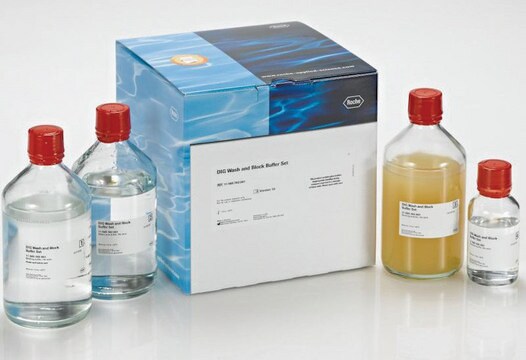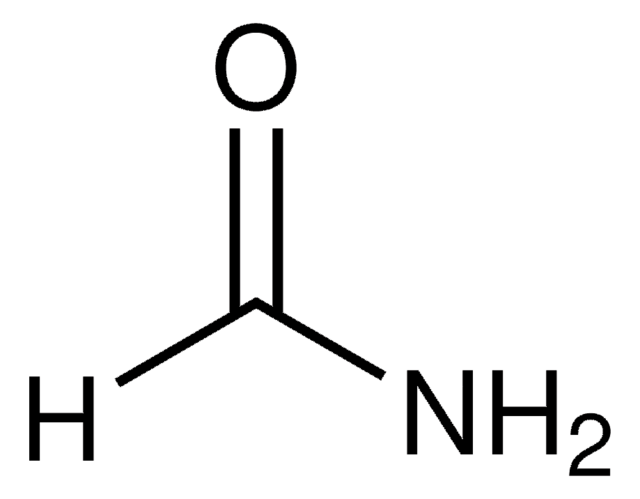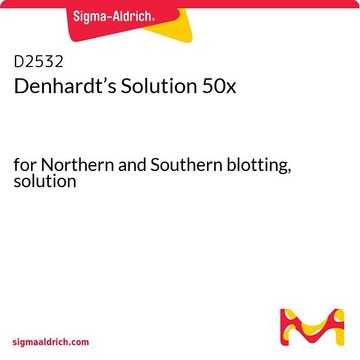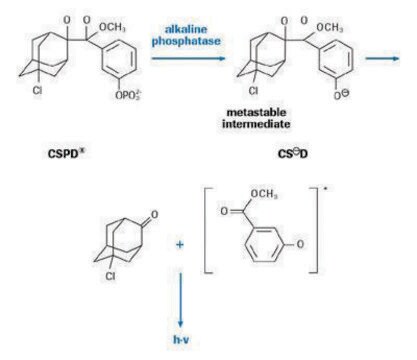11096176001
Roche
Blocking Reagent
For nucleic acid hybridization and detection
Synonym(s):
blocking reagent
Sign Into View Organizational & Contract Pricing
All Photos(1)
About This Item
UNSPSC Code:
41116100
Recommended Products
Application
The Blocking Reagent is used to decrease the background in nonradioactive filter hybridization and the detection of nucleic acid hybrids. It has also been used as a blocking agent in immunohistochemistry.
Preparation Note
Working concentration: Dilution of Antibody 1:5,000
Working solution: To prepare a 10x blocking stock solution Blocking Reagent is dissolved in maleic acid buffer to a final concentration of 10% (w/v) with shaking and heating either on a heating block or in a microwave oven.
Storage conditions (working solution): 10x stock solution of Blocking Reagent is autoclaved and stored at 2 to 8 °C. Alternativly, aliquots can be stored at -15 to -25 °C.
Working solution: To prepare a 10x blocking stock solution Blocking Reagent is dissolved in maleic acid buffer to a final concentration of 10% (w/v) with shaking and heating either on a heating block or in a microwave oven.
Storage conditions (working solution): 10x stock solution of Blocking Reagent is autoclaved and stored at 2 to 8 °C. Alternativly, aliquots can be stored at -15 to -25 °C.
Other Notes
For life science research only. Not for use in diagnostic procedures.
Storage Class
11 - Combustible Solids
wgk_germany
WGK 3
flash_point_f
Not applicable
flash_point_c
Not applicable
Choose from one of the most recent versions:
Already Own This Product?
Find documentation for the products that you have recently purchased in the Document Library.
Customers Also Viewed
Revised lineage of larval photoreceptor cells in Ciona reveals archetypal collaboration between neural tube and neural crest in sensory organ formation.
Oonuma K, et al.
Developmental Biology, 420(1), 178-185 (2016)
Richard C Krolewski et al.
Scientific reports, 10(1), 1781-1781 (2020-02-06)
The family of olfactory receptors (ORs) subserves the sense of smell and includes both functional alleles and pseudogenes, the latter identified by mutations resulting in frame shift or premature truncation. During neuronal differentiation, nonfunctional ORs are expressed initially but then
Nodal promotes functional luteolysis via down-regulation of progesterone and prostaglandins E2 and promotion of PGF2α synthetic pathways in mare corpus luteum.
Galv?o A, et al.
Endocrinology, 157(2), 858-871 (2015)
Nuria de Pedro et al.
Biological procedures online, 22, 2-2 (2020-01-21)
A large number of studies have suggested a correlation between the status of telomeres and disease risk. High-throughput quantitative fluorescence in situ hybridization (HT Q-FISH) is a highly accurate telomere measurement technique that can be applied to the study of
Hai Pan et al.
The Journal of biological chemistry, 297(3), 101080-101080 (2021-08-18)
TIN2 is a core component of the shelterin complex linking double-stranded telomeric DNA-binding proteins (TRF1 and TRF2) and single-strand overhang-binding proteins (TPP1-POT1). In vivo, the large majority of TRF1 and TRF2 exist in complexes containing TIN2 but lacking TPP1/POT1; however, the
Protocols
The easiest way to use the Blocking Reagent is with the Roche DIG Wash and Block Buffer Set, a ready-to-use set of stock solutions.
Our team of scientists has experience in all areas of research including Life Science, Material Science, Chemical Synthesis, Chromatography, Analytical and many others.
Contact Technical Service










